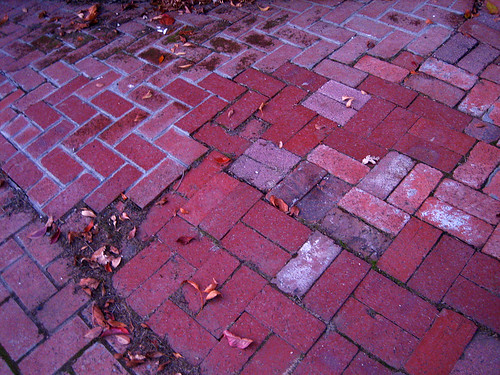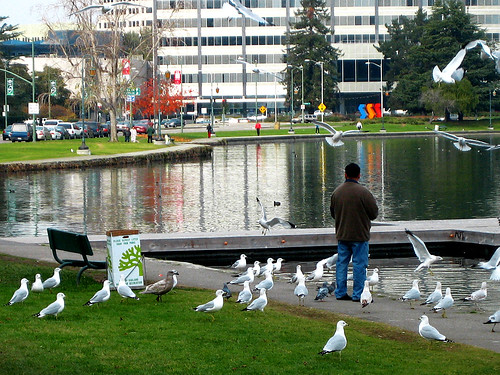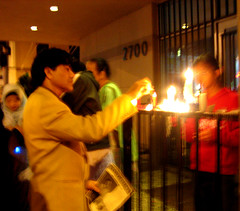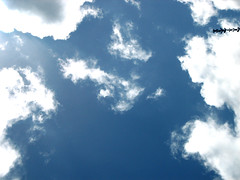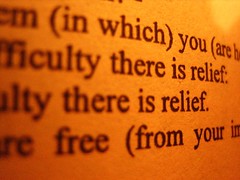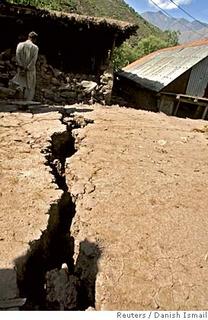and i will never learn to say goodbye to yesterday.
“Are you still sick from, like, 5 weeks ago?†L’s roommate (“the other Yasmineâ€) exclaimed when she heard me speak a few days ago, and all I could do was shrug helplessly and nod. I remember when I came down with the flu a year ago, how helpless and annoyed and exhausted it made me feel. Then, at least, I was able to take two weeks off from school and lie around the house, napping my days away. This year, I am not blessed with such an opportunity. I have a job, and a time-consuming internship that is another job even if it’s not as well-paid as the other, and four classes, each of which I’m two or three weeks behind in. How did I let it get to such a point that I have four papers I’m desperately trying to finish by Monday otherwise I might as well just shoot myself?
I’ve given up on energy drinks for now, and I’ve stashed all the cough syrup and maximum strength sinus/allergy pills and codeine and sore throat spray and pain relief medication back in the cabinet, and I try to eat (at least two) real meals everyday, and I sleep every single night instead of pulling my usual vampire child hours, but none of it has really been doing any good.
I still recall Tuesday the 8th as the worst day ever. Work, then lectures, then a class presentation for which I could barely speak because my voice was almost gone, then another class, then facilitating discussion at the women of color circle when, again, I could barely speak myself, then, at the end of the day, walking out and checking my voicemessages, only to find that damn T-Mobile had gone and changed the voicemail set-up, which meant the only way I could access my new voicemessages was to re-setup my voicemail settings and create a new greeting right then and there. I struggled not to cry. All day long, I had been walking back and forth across campus, the cold making my already-sore throat hurt so badly that I was constantly blinking back tears from the pain of it all.
I stood there by the MU, my throat burning from breathing in the cold air, and, after multiple attempts, managed to croak out a sufficiently coherent voicemail greeting. It sent all four of us into gales of hysterical laughter when I reenacted it for Somayya and our co-workers as we went out on a car-moving break two days later, but at the time all I wanted to do was cry. Or smash my phone against a bike or throw it onto the roof or kick it across the street and then maybe cry some more. I’ve re-played it just now, to make myself laugh: “This is Yasmine. Please leave a message and I’ll get back to you.†The “please†is muffled and the rest of it degenerates into a hoarse whisper. Perhaps I should change it, but it seems to be providing some much-needed comic relief during these days when I could definitely use the laughs.
The past month or so has consisted of an interfaith memorial service on the one-month anniversary of the Asian tsunami, numerous workshops and forums, presentations, discussion circles, a tsunami relief charity dinner, the Student Leadership Development conference, more workshops, and, in the past two days alone, the winter Dialogue with the Chancellor and the Women on the Verge conference – all of them events at which I had to present something, facilitate discussion, or at the very least offer some semblance of articulate input. And this is all stuff that is scheduled around my work and classes. I leave home at seven every morning, and it’s rare for me to get home before ten p.m.
The scribbled notes in my planner for the upcoming week make me wince: a class presentation, two cultural programs (I will be presenting at one and co-MCing for the other), and four workshops. Oh yeah, and did I mention those four papers I need to finish pretty damn soon? The week after that, there’s a workshop and a discussion circle. The week after that, final exams begin. It’s enough to make a rockstar cry. Or go take a nap. Because no matter how much sleep I get, I’m always tired.
I do all this extra stuff because I genuinely love it and believe in it and because it allows me to meet beautiful people who are equally passionate about such issues. But, yes, it tires me out and it means I’ve been spending more time on campus and less time at home recuperating and seeing my family which means I’m behind in my schoolwork because I’m still sick and if I can’t stay on top of things now then what the hell am I thinking by registering for five freaking classes (twenty units) next quarter? Oh wait, that’s because I need to graduate and get this drama over with already. Yeah, that would be a good idea.
This past Tuesday put things into perspective and reminded me that when I graduate and leave college, what I’ll look back and remember will be not the endless papers and all-nighters and energy drinks and my grade point average which is not even average but just simply atrocious by anyone’s standards (seriously, it is), but, rather, the memories involving the people I love.
H called me that morning while I was at work. I called him back on my way from Sacramento to campus, even though he hadn’t left a message and I usually have a policy of not returning phone calls if people don’t leave messages. But H is, well, H, even though he returns phone calls a week late, or, when he does answer his phone, he’ll hurriedly say, “Hey, let me call you back in two minutes, okay?†and then he never does. But he’s engaged to be married soon, and making plans for umrah, and still as much my hero as ever. Talking to H always serves to remind me of how much I don’t know, and gives me that extra inspirational push I need to better myself. How could I not love this kid?
When I called him back that Tuesday, he was walking to work in LA, buzzing with excitement at the books he’s reading these days. “Have you read these already?†he asked, rattling off the titles. “I wasn’t sure, so I wrote down the ISBNs for you, but I’m just going to send them to you with R when he comes up to Nor-Cal.â€
I asked what the books are about, and he said, “Here, let me read some of it to you.†I could hear the wind in the background, and the sound of rustling pages being hurriedly flipped through, and H rapidly muttering into the phone, “Hold on, hold on, hold on… Hold on, okay?â€
“I’m not going anywhere,†I said, amused. I got out of my car and stood with the sun in my eyes, listening to him reading to me over the phone. Later, when he had run out of breath long enough to pause and I had a chance to get in a word edgewise, I said cautiously, “Hey, last time we talked, you were all stressed about stuff, and I’m sorry I had to go in the middle of our conversation. How’re you doing these days, and how’s everything for you?â€
“ALHAMDULILLAHHHH!†he exclaimed, and I could hear the smile in his voice. “Everything is fine!†I honestly don’t know anyone else with the gift of imbuing the word “ALHAMDULILLAH†[all praise is for God] with as much heartfelt joy and contentment as H does. Just hearing him drawl out the word with such genuine happiness was enough to make smile as well. I sank down onto the curb in front of GAP, laughing with relief, absently studying the patterns of sunshine and shadows on the sidewalk as he updated me on his life.
Four p.m. found me sitting next to Somayya in a two-hour-long human development seminar, where we made faces at each other and rolled our eyes at how bored we were. I scribbled funny little notes to her and struggled not to laugh out loud at how amusing I thought I was, while she played the role of good student and constantly raised her hand to answer questions I hadn’t even been pretending to pay attention to. Half an hour into lecture, she mouthed, “I’m leaving at five.â€
“I think that’s a great idea.â€
“You should come with me.â€
“Sure, why not.â€
“Which door should we use?â€
Struck by a sense of déjà vu, I clamped down on a wave of laughter, remembering the afternoon we had left an anthropology lab early: “Which way should we go now?†“How ‘bout that way?†Was that really almost a year-and-a-half ago? Some things just never change.
We had two hours with nothing to do, which sounded wonderful until we realized there really was nothing to do. We drove around town in Somayya’s car, checking out both movie theaters three times and realizing that nothing was playing at a time that we could watch it. Neither of us was hungry. Funds were low, so a shopping spree was out of question. “Who are our friends, and where are they?!†I exclaimed. “No idea,†said Somayya. We ran through the list of core people: D was at work, L was at home but napping, HA has been missing-in-action lately, H graduated and went back to LA, H#2 was around somewhere or maybe in class or at work, who knows… So much for our friends. Useless!
“Okay, so what are our options? Sleeping in your car. Hanging out at Borders. Maybe if we had friends, we could have rented a movie and watched it at their place,†I said glumly, “but nooo…†We laughed. “I gotta yell at H for abandoning us, cuz as soon as he left us, everything fell apart. We don’t have friends anymore. What is this!â€
A few minutes later, back on the main street and stopped at a red light, I caught a glimpse of the red double-decker bus in front of us out of the corner of my eye, and said idly, “You know what, I miss A.â€
“I saw him the other day,†said Somayya.
“Oh yeah?†I said with interest. “Did he see you?â€
A split second later, we both looked straight ahead through the windshield of her car to find a grinning A waving frantically at us from the back of the double-decker bus, where he stood as conductor. “Oh my God,†I laughed, “well, look who it is.†We tried to make out his gesturing. “What’s he saying?†I asked Somayya. “Three? C? What?â€
“W,†she said. “WC. WC?†she mouthed. He nodded back rapidly, grinning.
“What are you doing with your life?†I pantomimed. He pointed at the bus. I shook my head. “Oh man, it never ends, huh?â€
He drew his cell phone out of his pocket, held it up to his ear, and mouthed, “Call me!†just as the light turned green and we continued through the intersection. The bus went straight while we turned right into a gas station, all of us waving goodbye. Somayya stepped out to pump gas while I called A. “Dude, I was just talking about you! What are you up to these days?â€
“Oh, nothing much. Graduating in June, then joining my girlfriend in DC.â€
“Aww man, that’s hella far. What do you have to do that for? Geez.â€
“Well, it’s only for a year,†he said consolingly. “And, hey, we need to hang out before graduation. You up for a Konditerei run?â€
“Always,†I said, cheering up. “We’ll coordinate. And, dude, you still haven’t tried the desserts at Little Prague. We gotta go there, too, okay? They have hella good strawberry napoleans and chocolate tortes and stuff.â€
“Sounds good to me. We’ll do both then.â€
“Good stuff. And you can help me remember all the German I’ve forgotten.â€
As we were hanging up, I distinctly heard him say, “Bye, Yasmine,†startling me. In all the years I’ve known A, and this is the sixth, I’ve always been Yaz or Yazzie to him, and he passed the habit along to AS as well, much as it sometimes frustrated me that my closest friends were far too enamored of the nickname to use my real name in conversation and even in introductions to strangers. We’ve come a long way, it seems. There are very few high school friends, and friends in general, that I’ve kept in touch with this long. I’m glad he’s one of them.
Somayya and I ended the evening on a good note: sitting down to eat ice cream at Ben & Jerry’s and reminiscing about our freshman year of college, followed by an impromptu and swift run-through of GAP, followed by a session of talking as we sat in her car at the parking structure, waiting for H#2 to show up. If you ignore the part where she (almost) lost her cell phone and we had to go back to Ben & Jerry’s even though it wasn’t there and the kid behind the counter seemed to find us entertaining but weird, then it was a good evening. Anything is worth giving up those two hours of human development seminar, because, ohmygod Becky, that class is so damn boring, you don’t even know.
Two nights ago, I came out of the Dialogue with the Chancellor to find a voicemessage from Somayya, saying, “I’m going home right now and I just thought of you cuz that one Matchbox Twenty song was playing on the radio, you know the one: I wanna push you around, well I will, well I will, I wanna take you for granted, well I will, well I will… And I can’t remember what it’s called, but I just thought I would let you know. Okay, bye!†I laughed, singing along to her message as I started my car and prepared to head home myself.
I called her back. “IT’S CALLED ‘PUSH’!†I shouted as soon as she answered.
She laughed. “Oh yeah! I thought of you cuz it always reminds me of that one day when I was pushing you on the swing.â€
I smiled. “Yeah, me too.â€
“This is the sort of the stuff we’re gonna be telling our kids about someday.â€
“Yeah,†I said, assuming a wry tone of voice, “It’s gonna be like, ‘Remember that time we walked into class late? Remember that time we passed notes to each other instead of paying attention? Remember that time we left class in the middle of lecture, ninety minutes early?’â€
She laughed. “‘Remember that time we didn’t go to class?’â€
“How could I forget that. That’s like, what, every other day or something? ‘Remember how we were joined at the hip? Remember how we were so bad at writing papers? Remember that time we went to watch a movie instead of studying for our midterms?’â€
It has always been the people who have made college worthwhile and memorable for me. My history of friendships hasn’t been very stellar – I’m the one who hates to call or neglects to reply to emails, the one who doesn’t make much of an effort to seek out friends and remain in touch with them, no matter how much they mean to me. Not that I have an excuse. I’m lazy, but I don’t think that counts. I suppose it’s a remnant of that self-defense mechanism I unconsciously honed while moving a lot as I was growing up. College made it easy on me, because there was always the chance that I would run into friends while walking across campus, or could at least stay updated on their lives via mutual friends. But graduation looms, and I’m wondering, Do I love my friends enough to start making effort of my own? Good thing I’ve got Somayya – cousin by default, friend by choice. We’re related, so I couldn’t escape her even if I wanted, and Lord knows I don’t want to anyway.
While I was writing this entry, H called. I laughed out loud at the coincidence, although I shouldn’t have been surprised. H has always had perfect timing like that, and I’ve learned to count on his brainwaves. Six minutes into the conversation, he said quickly, “Hang on, my battery’s dying. Let me plug in my phone and I’ll call you right back, okay?†But did he? Some things just never change. But how could I not love a kid who addresses me as “Ya Yasminayâ€?
>continue reading
